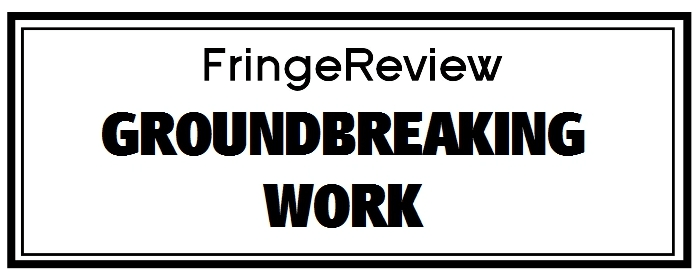FringeReview UK 2022
The Trials
Donmar Warehouse

Genre: Drama, Mainstream Theatre, New Writing, Political, Short Plays, Theatre
Venue: Donmar Warehouse
Festival: FringeReview UK
Low Down
Directed by Natalie Abrahami with Design by Georgia Lowe and Lighting by Jay Morjaria, Sound Designer & Composer Xana
Movement Directors Anna Morrissey, Aaron Parsons, Video Designer Nina Dunn
Casting Director Anna Cooper CDG, Production Manager Marty Moore, Costumer Supervisor Olivia Ward, Associate Director Joseph Hancock, Voice Coach Emma Woodvine, Sustainability Consultants Julie’s Bicycle, Safeguarding Advisor Joanna Nicolas, Production Dramatherapist Wabriya King, CSM Lavinia Serbran, DSM Bex Snell, ASM Benjamin Dootson, Resident Assistant Director Josh Parr
Chaperones Roxanne Applebee, Abraham Chowdhury, Julia Phelan
Junior Assistant Director Amara Rigault, Junior Stag Manager Rebecca Wright, Junior Designer Melanie Lope, Junior Noa Penia, Junior Sound Designer Seraphina Denton
Rehearsal and Production Photography Helen Murray
Till August 27th
Review
Door-thunk, spotlight. Nigel Lindsay’s Defendant One umms his ad-exec’s belated attempts to atone. 2040. We’re on trial and that means anyone turned 18 by October 2018 (when climate emergency was ratified) whose carbon footprint exceeds a given amount. And big killer salaries. Guilty’s a death sentence.
In Dawn King’s The Trials directed briskly at the Donmar by Natalie Abrahami in 95 minutes, we’re not tried by peers, but children. Open a door and thick carbonated air chokes you. One juror collapses with asthma. His grandparents died of it, alongside hundreds of millions. There’s not enough planet for survivors. Malthus, unwitting author of such neo-fascist gems as ‘we’re sinking with immigrants’ comes of age, 250 years on. It’s the indigenous, though, who did the sinking.
Major malefactors have been executed. Those now on trial are ordinary folk who went along with them. Is it the same thing? King nails details of complicity; on the other side judgementalism and rejection of the system.
The Trials features a mostly theatre-debuting cast from the Donmar Local project playing twelve angry, sober, bored, idealistic, horny teens, ranging nominally 12-17 though King’s real range is characterising each juror’s response to a post-democratic world. Justice is two weeks’ jury service, a relentless processing of a defendant’s recorded statement, then fifteen-minutes’ deliberations cut off by a klaxon. Show and trial.
It’s where capitalist realism – easier to imagine the end of the world than the end of capitalism – meets apocalypse after all. The outfall of doing nothing to stop climate change, of accepting there is no alternative (so we cannot nationalise power, say, as media and oil moguls decree), meets an imperative world stripped of no.
Quite how this dictat is organised isn’t clear, though since several jurors don’t want to be here, as in any jury, elders are virtue-pecking. King lets a smoked world seep in at moments when jurors exit and the case can’t be discussed. What is clear is the tremendous pace and visceral response this ensemble bring, listening and reacting as if they’ve inhabited their roles for years via time-travel.
There’s two enchanting – if with the second slightly clunky – moments when a previous world, say of snow, is rapturously imagined: with Jay Morjaria’s lighting, , Nina Dunn’s video (also projecting defendant’s faces) and – bubbles, part of Georgia Lowe’s spare set, consisting of two tables (upended where jurors imagine tension and release), chairs, water jugs, a crush of audience-seating spiralling a pyramid upstage, where Charlie Reid – larky, disconnected, hyper-active Tomaz – lounges, a jester without a courtroom. Reid’s buzzing electron threatens to throw the nucleus before it starts, a neat pull-away from a repeat scenario by movement directors Anna Morrissey and Aaron Parsons. These moments dilate fears, bonds – two couples pair off and reach crises – and hopes as fragile as a pop. Xana’s sound and brief themes shiver like cracked world.
King’s dystopia inflects memories of debbie tucker green’s hang, where a victim’s relative chooses mode of execution; and more distantly Churchill’s Far Away, staged at the Donmar before lockdown. There, enemies were executed after marching in fantastical hats. Here, uniquely, we’re at guilt’s tipping-point, there’s dissenting voices: King invokes two-weeks service as a link to our post-covid world not so far removed from this, further warped by catastrophe.
There’s actors we’ve seen before. Appearing in The Ferryman, Elsie Alexandre as Amelia gets mocked by Tomaz as she needs to vomit terror at doing the wrong thing. It’s a fine study in someone who’ll be traumatised and backs away, very differently from Tomaz. Francis Dourado’s Mohammad makes an impressive debut as the son of liberal teachers who refuses the guilt of anyone. When his ‘I don’t want to judge anyone’ is riposted ‘That’s literally what we’re here to do’ it’s what he’s up against.
With Alexandre and Reid circling dissent, proceedings are initially dominated by the angry: making her debut though already playwriting, Joanna El-Daouk’s Gabi has done jury service, and seeing herself as spiritual Domestos, wants to kill all known ‘dinosaurs’ dead. Like Joe Locke’s equally incensed Noah (from Heartstopper) she memorably seethes revenge after tragedy. Locke’s Noah, witnessing his parents’ drowning, is ultimately more complex and surprising.
They dominate till both are rejected as jury leader for the more reflective Ren, played with a haunting carefulness by Honor Kneafsey, who stills frantic arguments with a believable, co-operative authority in one of the strongest performances. Ren’s enviro-cred yet packs a secret, impacting on William Gao’s Xander, drawn to her, clean-cut volunteer who works clearing bodies and debris. Again trickier to shade a wholly positive character who writes poems. But Gao, another from Heartstopper and the Court’s Living Archive, radiates warmth, deliberative doubt.
There’s nuance from another debut, Meréana Tomlinson’s Kako was asked by both lawyer dads to witness their execution – it’s not euthanasing, a word chillingly encouraged by shadowy authorities. Invoking that world of privilege for others (eating bacon) Tomlinson imprints Kako’s shameless nostalgia and pragmatic acceptance with taste and smell.
Rue Millwood’s Chris has less to do and (as with all smaller parts) one wants to see more. Early attracted to Noah’s righteousness the way some like preachers, they immediately invest in him. Though their non-binary identity (congruent with Millwood’s) deserves a sentence or two imagining how twenty years has matured it, since King projects the ‘they/them’ ‘she/her’ jurors introduce themselves with, as already over twenty years old.
Taya Tower’s experience ({BLANK} here, Almeida’s The Hunt) seems a tad wasted on hesitant Zoe, the youngest at twelve, who shares the snow scene with Tomaz in a fragile rapture of dead innocence.
Pelumi Ibiloye’s Marek, also debuting, projects zen calm. In leading meditation Marek proposes a value-system equally removed from the carceral carnival of executions he’s processed into. Jairaj Varsani’s Adnan manages some painful witness, asthma viscerally signalling how environment impacts him – and grandparents and billions fatally.
The defendants are equally excellent. King cleverly intensifies the premise of debate, complicity, agency. Each is a skilled advocate. Lindsay’s suppression of an ad-man’s petulance, dismay and denial works up into confiding digressions and straw-snatching. Lucy Cohu’s Defendant Two, King’s winking self-portrait asks just how guilty is someone who’s done everything right from childhood, says right things, yet exceeded her carbon footprint. Must be collecting all those awards and jetting off to see your latest play. Cohu’s connective cunning is an art of concealment.
So Sharon Small’s Defendant Three ought to be easy. An oil executive who freely expresses contrition. Small uses a battery of identifications where she and King deploy a double blinder. It sets up volte-faces and challenges – in one case a little contrived for peripeteia (more backstory needed) – but this is a gripping, exceptionally powerful drama whose premises aren’t exhausted by the play’s end.
It’s both committed yet brutal, with truthfully ambivalent individuals yet relentless in its conclusions. And it’s surely the most persuasive, multi-layered play on climate change of recent years. As well as the only one to explore its impact on a new generation, here tasked with savage choices. Who guards guardians? What traumas lie ahead for children and young adults subjected to this?
The new system’s not intended as a school for sociopaths but it’s the power King elicits from The Trials that makes you wonder what life, not King will do with her twelve jurors. Groundbreaking.








































